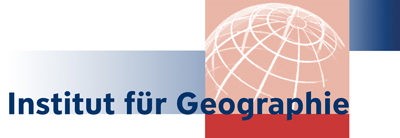Institutskolloquium Kulturgeographie: Agricultural Land Use Changes in Spain: Markets, Climate, and Water Resources, with a Case Study in the South of Catalonia – 07.02.2024
Vortragende Person: Gabriel Arbonès Domingo (Observatorio del Agua, Fundación Botín / Escuela Técnica Superior de Ingeniería Agronómica, Alimentaria y de Biosistemas, CEIGRAM, Universidad Politécnica de Madrid.)
Titel: „Agricultural Land Use Changes in Spain: Markets, Climate, and Water Resources, with a Case Study in the South of Catalonia”
Moderation: Dr. Stefan Kordel
Kurzzusammenfassung:
In Spain, irrigated cropland has witnessed an increase of 500,000 hectares from 2004 to 2018. The literature points to intensive irrigated agriculture as a primary contributor to biodiversity loss, deterioration of water body quality, and shifts in rural economic dynamics. The consequential soil degradation, exacerbated by climate change, poses a significant threat, with nearly three-quarters of Spain susceptible to desertification. This study aims to elucidate the dynamics of land use changes in Spain, particularly in irrigated crops, with the goal of fostering sustainable transitions by identifying factors influencing farmers‘ decisions in altering land use and crop surfaces. The methodology employed involves the analysis of data from government public databases, encompassing land use patterns from 2004 to 2022. Factors influencing farmers‘ decisions on land use changes are comprehensively examined, including climate fluctuations, water scarcity, irrigation technology, international trade, and policies such as the Common Agricultural Policy (CAP). Findings reveal discernible trends in agricultural intensification in Spain, characterized by the abandonment of less productive croplands and the intensification of highly productive lands through increased irrigation. Notably, irrigated woody crops, particularly olives, vineyards, and almonds, have experienced significant expansion, predominantly in the water-constrained southern region, facilitated by enhanced groundwater exploitation. This proliferation is attributed to the widespread adoption of localized irrigation technology, market trends, and changes in the CAP. In the Baix Camp region of Catalonia, a case study investigates the impact of climate change on agriculture and explores potential adaptation and mitigation measures for farmers. Climate analysis, conducted through the analysis of data from meteorological stations and climate change models, is complemented by an exhaustive literature review. Results are validated through interviews with local farmers, revealing rising temperatures and increased rainfall variability leading to more frequent and intense droughts. The local agricultural sector, already grappling with numerous challenges, is proactively adapting to the evolving climate conditions. The study concludes by offering the author’s perspective on the role of scientists in addressing these issues and proposes strategies to enhance collaboration between researchers and farmers.
Wann: Mittwoch, 07.02.2024 von 12:30 bis 14:00 Uhr
Wo: Seminarraum 00.175, Wetterkreuz 15, 91058 Erlangen
